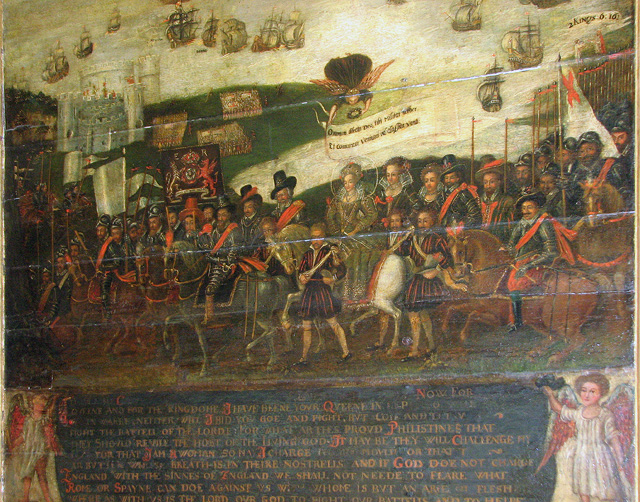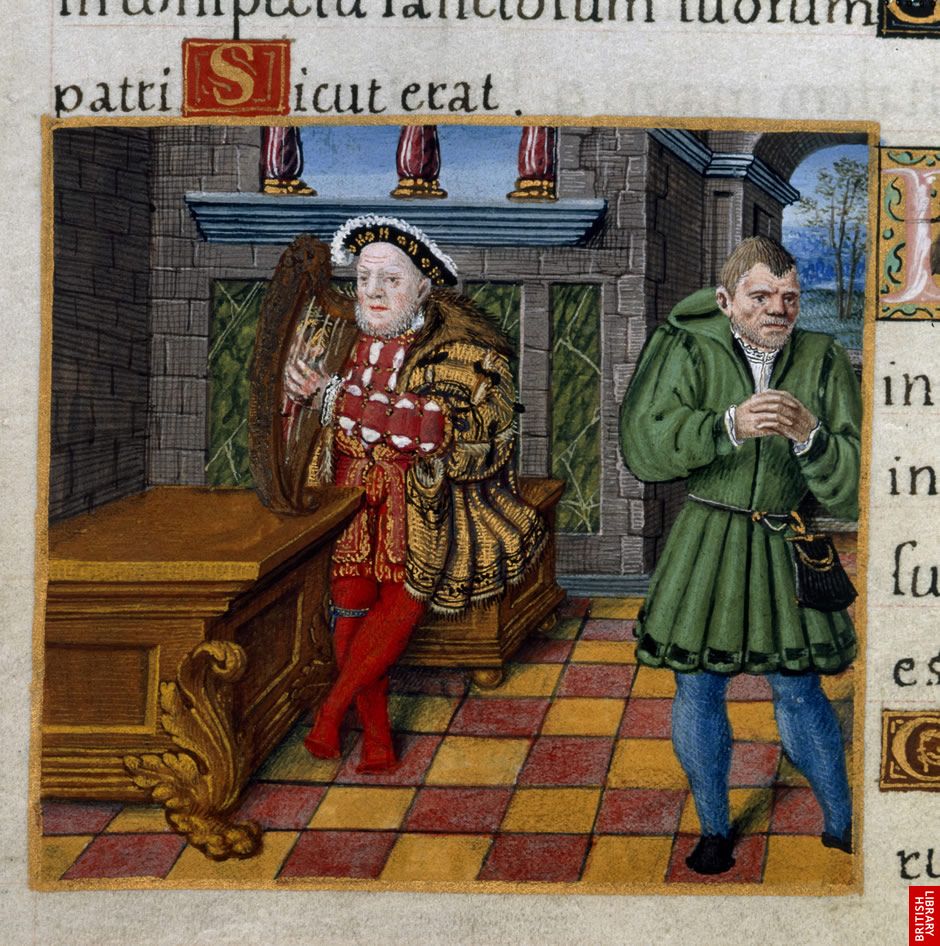Tuesday’s Tip: Primary sources – ‘Unwitting Testimony’
Last week’s Tuesday Tip discussed the 6 ‘w’s of decoding a primary source. As a former history student of the UK’s Open University, I would be neglecting my training as a historian if I didn’t blog about ‘unwitting testimony’. This term was invented by the much loved extraordinary Open University professor Arthur Marwick. To quote this redoubtable historian
The phrase is … borrowed from the distinguished American historian of science, Henry Guerlac … `Witting’ means deliberate or intentional; `unwitting’ means unaware or unintentional. `Testimony’ means evidence. … it is the writer, creator, or creators of the document or source, who is, or are, intentional or unintentional, not the testimony itself … Witting testimony is the information or impression that the person or persons who originally compiled the document or source intended to convey … or record. … Unwitting testimony is evidence which historians find very useful, but which the originator of the document is not conscious might be conveyed to later historians, for it would be known anyway, or taken for granted, by contemporaries.(1)
So, what extra ‘unwitting’ information does your primary source give you that perhaps the source’s author didn’t intend to provide?
Elizabeth I
Let’s take an example of a primary source: Elizabeth I’s 1588 speech to her troops at Tilbury just before the Spanish were going to invade with their Armada. Let’s assume that you’ve done the 6 ‘w’s of decoding a primary source and are now trying to squeeze more information out of her speech. Take this part of her speech (leave aside the queries that there are two versions!)
I know I have the body but of a weak and feeble woman; but I have the heart and stomach of a king, and of a king of England too, and think foul scorn that Parma or Spain, or any prince of Europe, should dare to invade the borders of my realm; to which rather than any dishonour shall grow by me, I myself will take up arms, I myself will be your general, judge, and rewarder of every one of your virtues in the field(2)
What testimony was Elizabeth unwittingly giving to future historians?
I’ve got a few ideas – how about you? Write your thoughts about Elizabeth’s unwitting testimony in the comment box below.
 Elizabeth at Tilbury in 1588 after the defeat of the Armada(3)
Elizabeth at Tilbury in 1588 after the defeat of the Armada(3)
Henry VIII
Here’s something from Elizabeth’s father – Henry VIII. These are the opening words of his will. Very few words but within them, Henry gives his very definite unwitting testimony on his (and therefore England’s) religion.
In the name of god and of the glorious and blessed virgin our Lady Saint Mary and of all the holy company of heaven...(4)
What testimony was Henry unwittingly giving to future historians of the Reformation? Write your thoughts on Henry’s unwitting testimony in the comment box below.
Great Dunmow’s churchwarden accounts(6) and unwitting testimony
In this post The Catholic Ritual Year – Plough-feast, May Day, Dancing Money, Corpus Christi, I said that activities in Great Dunmow for Plough Monday, May Day and Corpus Christi were probably well established before 1525-6 and the arrival of the leather-bound churchwardens’ accounts. In 1525-6, the churchwardens wrote short, concise entries without explaining each entry – thus giving the impression that these events were already well-established within the parish before the arrival of the churchwardens’ account-book. This is unwitting testimony.
Likewise, in this post Tudor administration within Great Dunmow there is unwitting testimony that the scribe took great care in recording the collection for the church steeple and collating all this information. There is also unwitting testimony that each person was documented in the churchwardens’ accounts in strict social-hierarchy order. In this instance, this unwitting testimony can be confirmed by cross-referencing each entry to the 1523-4 Lay Subsidy returns.
However, the unwitting testimony about Plough Monday, May Day and Corpus Christi cannot be confirmed as the churchwardens’ accounts prior to 1525-6 have not survived.
Conclusion
Squeezing as much as possible out of primary sources can be an extremely rewarding experience. Sometimes what a source doesn’t state is as equally important as what it does! Use the technique of unwitting testimony along with the 6 ‘w’s of decoding a primary source to make the very most of your precious source material.
Footnotes
1) Arthur Marwick, The Nature of History, (London, 1989), p 216 and 218, as cited on Marwick on Witting and Unwitting Testimony (accessed February 2012).
2) Elizabeth I’s 1588 speech to her troops at Tilbury (accessed February 2012).
3) Queen Elizabeth at Tilbury in 1588 after the defeat of the Armada. 17th Century panel in St Faith’s church in Gaywood, Norfolk. ©Evelyn Simak and licensed for reuse under this Creative Commons Licence.
4) Will of Henry VIII, king of England, France, and Ireland (1546), The National Archives, E23/4
5) The Psalter of Henry VIII, (London, between 1530 and 1547), Psalm 53 (52), Shelfmark: MS 2 A XVI, f. 63v. © The British Library Board.
6) Great Dunmow, Churchwarden accounts (1526-1621), Essex Record Office D/P 11/5/1.
General Note
I learnt some of these techniques for analyzing primary sources via many of the wonderful history tutors from the UK’s excellent Open University. I owe a debt of gratitude to those tutors in helping me understand how to properly decode historical documents.
*-*-*-*-*-*-*-*-*-*-*-*-*-*-*-*-*
This blog
If you want to read more from my blog, please do subscribe either by using the Subscribe via Email button top right of my blog, or the button at the very bottom. If you’ve enjoyed reading this post, then please do Like it with the Facebook button and/or leave a comment below.
Thank you for reading this post.
You may also be interested in the following
– The craft of being a historian: Research Techniques
– The craft of being a historian: Analysing primary sources
– The craft of being a historian: Using maps for local history
– The craft of being a historian: Online resources
© Essex Voices Past 2012-2013.


Comment (6)
carol beardmore| 28th February 2012
My comment on the unwitting testimony of Elizabeth I’s speech is that she was telling everyone that although female she was as good as any male king. Not only that but should the King of Spain attempt invasion she would stand up to him and if necessary lead the men into battle. I guess she is telling everyone that she was no coward and a force to be reckoned with.
the narrator| 13th March 2012
This part of her speech is interesting too ‘but I have the heart and stomach of a king, and of a king of England too’. She can’t be referring back to the last person to be king of England – her sickly half-brother boy-king Edward VI!
So here she must be referring back to the ‘glory days’ of bluff King Hal – her father, Henry VIII! She’s saying that although she’s a woman, she’s her father’s daughter – a warrior king who will fight to the death to protect England.
Mike Fitzgerald| 15th March 2012
I too recall Arthur Marwick in my early days at the OU.However I never really got to grips with unwitting testimony due to my limited capacity for understanding certain concepts.
Myriam Dorrell Terracciano| 18th March 2012
Hello, I have just read your recent post on the OU history forum. I do remember you, especially when you wrote about your big leap to master studies. Congratulations on your achievement! And this blog is fantastic, it shows how hard you have been working.
Now unwitting testimony, who can forget Arfur ehi? May I bring in secondary sources, lol?
I wonder if Helen Castor might be right (She Wolves BBC). Her argument being that Matilda could not access the throne because female. I am not convinced, but it is possible that Elisabeth was thinking of this female failure. My money is that she was surrounded by men at Tilbury: she had to reassure them that she had a female body after all, and still needed their protection however strong her mind was. Also the views of John Knox about women were well known to her, she was possibly trying to reassure protestants. She made sure that her “virginity” was comparable to England’s nationhood: not to be violated. Only men could guarantee that.
the narrator| 18th March 2012
Thanks for your comment Myriam. You’ve made an interesting point about Elizabeth and the men at Tilbury. I’ve just received my copy of Helen Castor’s book (to go with the series) – can’t wait to read it!
Alan| 28th March 2014
“or any prince of Europe’,
Doesn’t this show that aside from Spain, Elizabeth had concerns about other European nations wishing to invade England?